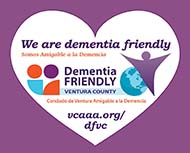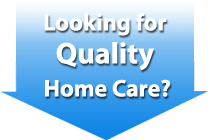Assisted Home Health & Hospice’s COVID-19 Update
As our communities continue to feel the impact of COVID-19, we wanted to share with you the steps Assisted Home Health and Hospice takes to help protect the health and safety of our patients and employees. We have closely monitored local and national reports on the evolution of COVID-19 and follow the guidance from the Centers for Disease Control (CDC), CMS, OSHA, Cal OSHA, and applicable public health agencies. As part of our Emergency Preparedness Program, we have developed Procedures for COVID-19 that will allow us to respond timely and appropriately. In an effort to reduce transmission of COVID-19, Assisted Home Health & Hospice would like to share appropriate prevention methods.
The CDC recommends these Basic Prevention Strategies to help protect yourself and others:
- Get the COVID Vaccination and Booster when eligible
- Wear a well-fitting mask over your mouth and nose when indoors in public areas, regardless of vaccination status
- Wash your hands. Hand hygiene is the MOST EFFECTIVE way to protect yourself from infection. Washing hands often with soap and water for at least 20 seconds, especially after going to the bathroom, before eating, and after blowing your nose, coughing, or sneezing. Using an alcohol-based hand sanitizer that contains at least 60% alcohol is acceptable unless hands are visibly soiled.
- Cover coughs/sneezes with a tissue and throw it in the trash. If tissues are not available, use your sleeve or cough into your elbow, not your hands.
- Avoid touching eyes, nose, and mouth with unwashed hands
- Avoid shaking hands, use other signs of affection rather than hugging
- Use a social distance of 6 feet or greater between yourself and others
- Regularly clean and disinfect frequently touched objects and surfaces with a household cleaning spray or wipes to help remove germs
- Avoid poorly ventilated spaces and crowds
- Avoid close contact with people who are sick
- Practice regular self-health-monitoring
- Stay home if YOU are sick. Follow quarantine requirements
If you or anyone in your household develop any of the following symptoms or suspect you have been in contact with someone with COVID-19, please contact your local Assisted Home Health & Hospice office immediately. Notify your nurse, therapist, or caregiver before they enter your home. People with these symptoms may have COVID-19:
- Fever or chills
- Cough
- Shortness of breath or difficulty breathing
- Fatigue
- Muscle or body aches
- Headache
- New loss of taste or smell
- Sore throat
- Congestion or runny nose
- Nausea or vomiting
- Diarrhea
A link to Assisted Home Health & Hospice’s local offices can be found at https://assistedcares.com/areas-we-serve/
Approach to Care of Current Patients/Families
Assisted clinicians, who perform home visits, will contact patients/families the evening/day before making the visit. They will ask these screening questions to identify and prevent possible COVID exposure:
- Have you (patient/family) had a recent exposure [close contact] to someone diagnosed with or suspected of having COVID-19?
- Do you (patient/family) have any new symptoms of cough, fever, difficulty breathing, chills, headache, sore throat, runny nose, congestion, GI upset, muscle pain, new loss of taste or smell?
For any YES response, Assisted will address and follow proper procedures for prevention. Proper precautions, safety measures, and cleaning/disinfecting procedures are important. Clinicians follow Standard Precautions which includes:
- Meticulous hand hygiene
- Use of Personal Protection Equipment (PPE) is needed to protect against contact with blood/body fluids, including airborne contaminants. Clinicians will wear masks during your visit and may ask that you wear one as well, if able. Other PPE utilized may include the use of face shields/goggles, gloves, and gowns
- All homes/residences with patients who have acute respiratory symptoms will be evaluated for their risk of COVID-19
- Clinicians will practice social distancing, when appropriate and reasonable to do so
Assisted feels deeply for those who have been affected. We have implemented guidelines that instruct any employee who may develop symptoms or come into contact with infected individuals on what needs to be done.
Again, the health and safety of our patients and employees are our top priority, and we’re committed to doing our part to help keep you safe.
CDC Guidelines:










